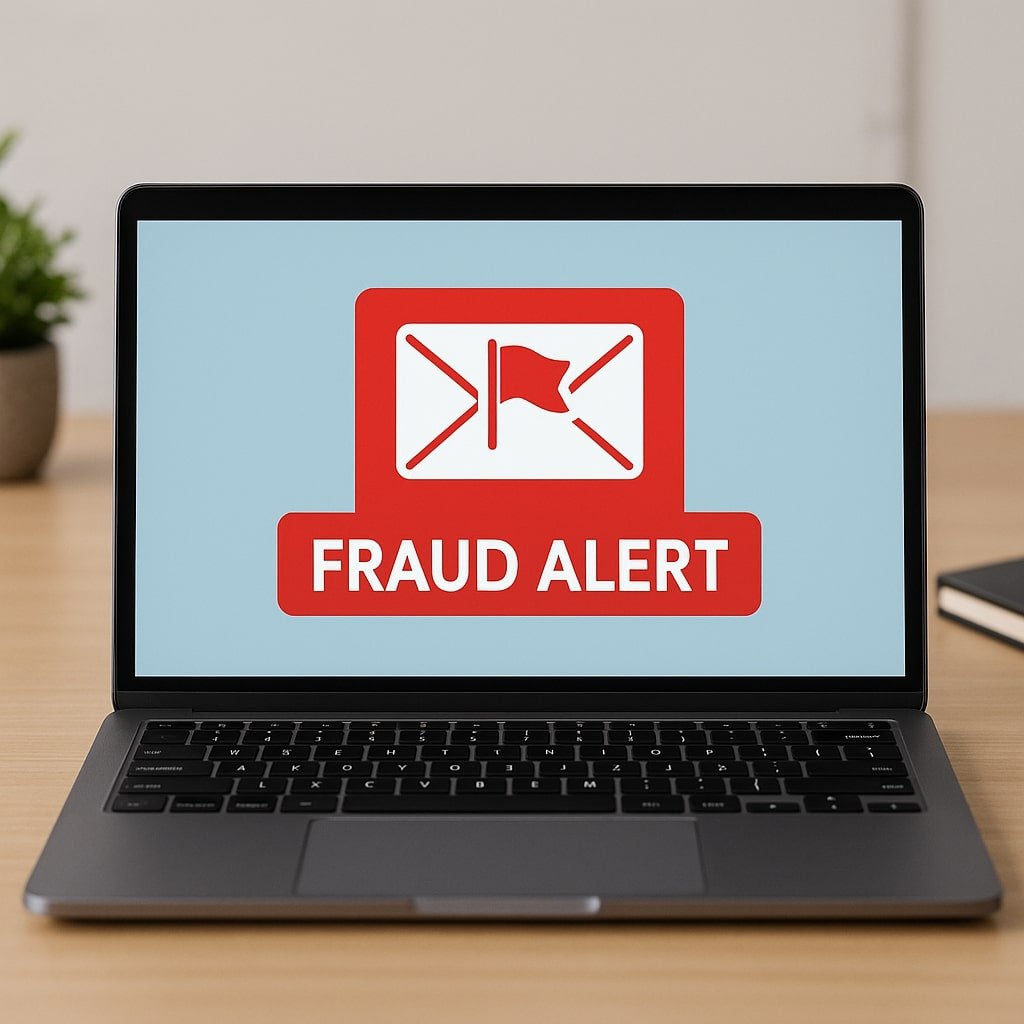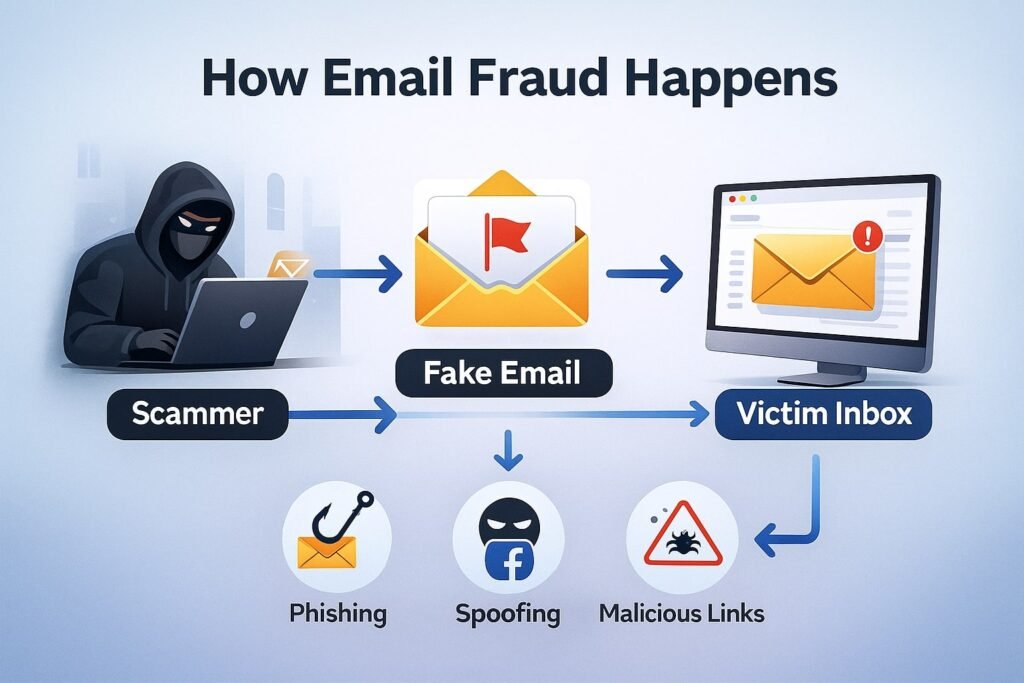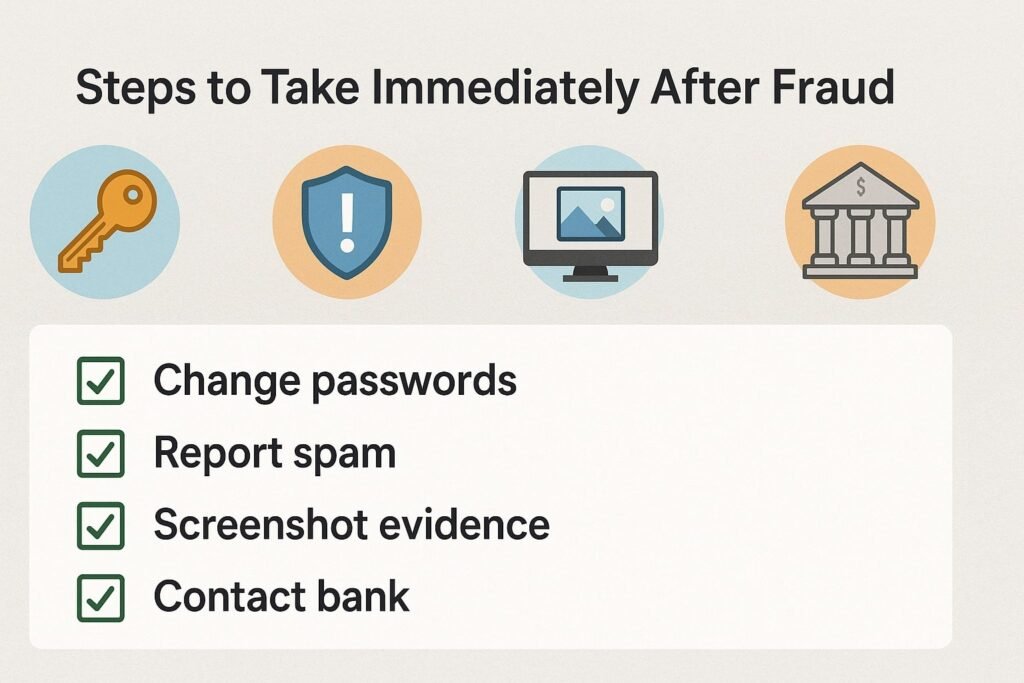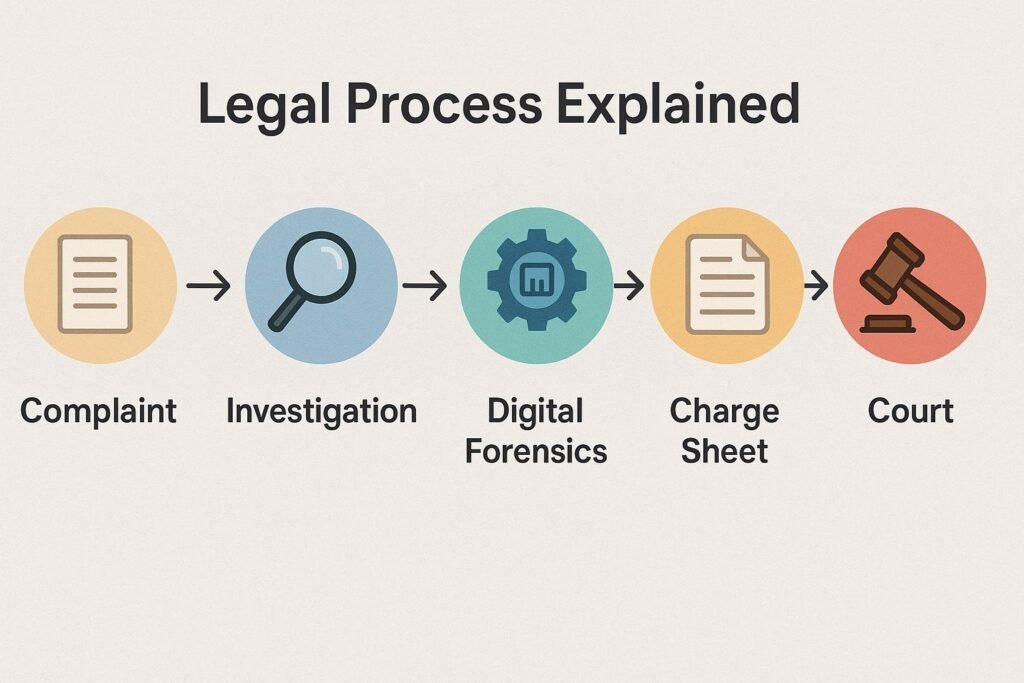
Let me start with something honest: email fraud doesn’t happen to “careless people.”
It happens to busy people.
People who trust.
People who are trying to get through the day without triple-checking every message in their inbox.
I’ve seen business owners, students, retirees, and even tech-savvy folks fall for incredibly clever scams. When you’re juggling work, life, and a hundred other tabs in your brain, one convincing email is enough to throw things off.
So if you’re reading this because something went wrong—even slightly wrong—take a breath. You’re not alone, and you’re definitely not the first.
Below is a simple, warm, and genuinely helpful guide on how to legally handle an email fraud case, written exactly the way I’d explain it to a friend over coffee.
1. First, Let Yourself Process What Just Happened
Most people immediately jump to panic, guilt, or anger. That’s normal. Scams feel personal even when they aren’t.
Give yourself a minute.
When you calm down, look back at the email and ask yourself:
Did it pressure you?
Did it mimic a real company?
Did you click something because it felt urgent?
The scammer probably crafted it to feel legitimate. You didn’t “mess up.” You responded the way any human might.
2. Lock Everything Down — Think of It Like Securing Your House
If someone broke into your home, you’d lock all doors and windows.
Online fraud works the same way.
Here’s what to do (and do it immediately):
✓ Change your email password — make it long and weird.
✓ Change passwords for connected accounts (banking apps, social media, cloud drives).
✓ Enable two-factor authentication if you haven’t already.
✓ Run a virus scan on your laptop/phone.
This step isn’t just technical housekeeping. It’s emotional too. Taking control makes you feel less helpless.
3. Gather Evidence (You Don’t Need to Be a Tech Expert)
You don’t need fancy tools. Just start saving things like you’re putting pieces of a puzzle together.
Save:
The scam email
Any attachments (don’t reopen them)
Screenshots of messages
Transaction records
Your notes about what happened and when
You’re building a simple timeline. Nothing complicated. Just clear information that can help authorities or your bank understand the situation later.

4. Call Your Bank — They Deal With This More Often Than You Think
If money was taken—or even almost taken—your bank needs to know right now.
Most banks have entire teams dedicated to fraud recovery. When you explain what happened, don’t feel embarrassed. Trust me, they hear similar stories every single day.
They can help you:
Freeze cards
Reverse payments (not always guaranteed, but possible)
Flag your account
Guide you through next steps
And honestly, it feels good to hear someone on the other end say, “It’s okay, we’ll handle this.”
5. File an Official Cybercrime Complaint (It’s Not as Scary as It Sounds)
Reporting the fraud legally is important for two reasons:
It protects you.
It stops the scammer from targeting others.
If you’re in India, you can file a complaint through the National Cyber Crime Reporting Portal or at your nearest police station. Officers today understand digital fraud much better than they did a few years ago. The process is smoother than people think.
If you’re in another country, there will be similar reporting options. A quick search for “report cybercrime in [your country]” will show you the exact website or agency.
6. If It Happened Using Your Work Email, Tell the Office
People often hesitate here because they feel embarrassed. But if a scam came through your work inbox, your IT team absolutely needs to know.
It’s not about blaming you.
It’s about preventing a chain reaction.
One fraudulent email can lead to:
Data breaches
Ransomware
Compromised customer information
Your report could actually save your company from a much bigger problem.

7. Maybe Talk to a Cyber Lawyer If Things Got Serious
Not every case requires legal help. But if:
Large sums of money were stolen
Your identity was used
Business information was leaked
then speaking with a cyber law expert can give you clarity. They won’t drown you in legal language—they’ll walk you through your rights and the realistic outcomes.
Think of it like getting a mechanic to check your car after an accident. You can drive without advice, but it’s safer when an expert inspects the damage.
8. Strengthen Your Digital Habits So This Doesn’t Happen Again
Nobody likes hearing “learn from it,” especially when you’re still upset. But eventually, when you feel calmer, build a few habits that protect you in the long run:
Don’t click links in emails before checking the sender address.
If something feels urgent, pause. Scammers love urgency.
Use different passwords for important accounts.
Turn on 2-step verification everywhere—yes, it’s annoying, but worth it.
Backup your files once in a while.
If you run a business, consider a short cybersecurity training session for your team. One hour of awareness can prevent thousands of dollars in losses.
9. Talk to Someone About It (Really, It Helps)
Cyber fraud feels isolating. You might even feel silly admitting it. But talking to a friend, partner, or coworker helps more than you think.
Saying it out loud takes away half the shame.
And you’ll realize how many people have been through something similar.
10. Be Patient With the Legal and Banking Process
Recovery from online fraud isn’t instant. Banks may investigate. Police may take weeks to respond. Official portals might ask for additional documents.
It’s frustrating, but it’s normal.
Keep your paperwork organized. Follow up politely. Stay consistent. Many people do get partial or full recovery—especially when they act fast.

Final Words (From One Human to Another)
Email fraud is one of those experiences that shake you for a moment. It’s intrusive, it’s stressful, and it’s deeply personal. But it’s also something thousands of perfectly capable people face every day.
What matters now isn’t the mistake—it’s the action you take afterward.
You’re doing the right thing by looking for guidance. You’re taking control. And with the steps above, you’re already far ahead of where most victims end up.
You’re human. You’re learning. And you’ll get through this—stronger and a lot more digitally aware than before.